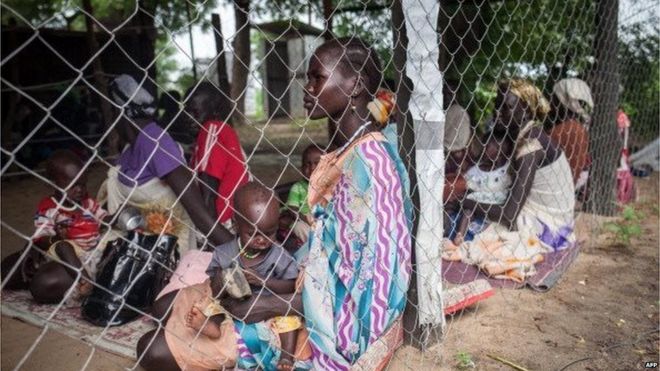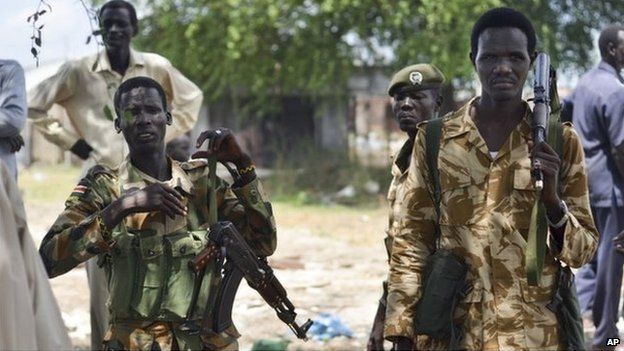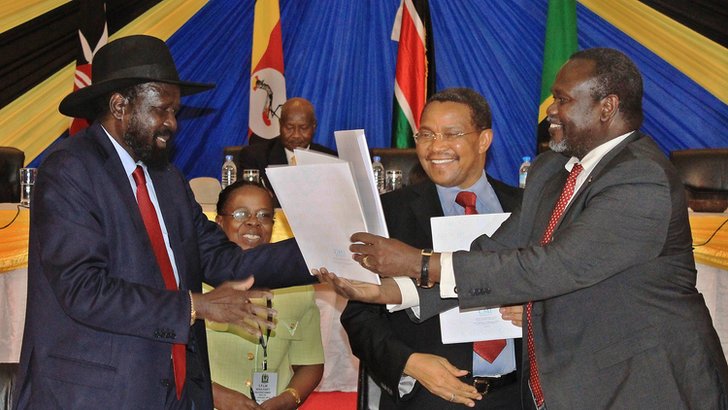The U.S. Department of the Treasury said Thursday it imposed sanctions on both sides of a civil war in South Sudan, targeting a military commander and an opposition commander.
The U.S. move follows United Nations sanctions imposed Wednesday on them, as well as on four others who Treasury previously targeted. The war, which began in December 2013, has left 6.5 million people in need of humanitarian aid, while 2 million remain displaced, a Wall Street Journal report said this week. Disruptions to the oil industry, South Sudan’s economic engine, have frozen commerce and prompted a shortage of cash and food, the report said.
The war, which began in December 2013, has left 6.5 million people in need of humanitarian aid, while 2 million remain displaced, a Wall Street Journal report said this week. Disruptions to the oil industry, South Sudan’s economic engine, have frozen commerce and prompted a shortage of cash and food, the report said.
As a result of the sanctions designations, Americans anywhere in the world are barred from engaging in transactions with the commanders, and their U.S. assets are frozen.
To impose the sanctions, Treasury’s Office of Foreign Assets Control used an executive order signed in April 2014 that authorizes sanctions on those threatening peace or stability in South Sudan; OFAC said Thursday it was the third time that it madedesignations using the South Sudan sanctions program.
“As leaders of opposing groups in South Sudan, both Gabriel Jok Riak and Simon Gatwech Dual are responsible for perpetrating violence and breaching ceasefire agreements,” John E. Smith, acting director of OFAC, said of the sanctions in a statement. Mr. Jok Riak, Treasury said, is the commander of Sector One of the South Sudanese military, and since April, his forces have been conducting a “full-scale offensive” against opposition forces in three South Sudanese states in violation of multiple ceasefire agreements. He also reportedly assisted in arming and mobilizing as many as 1,000 youths to supplement traditional South Sudanese military forces, Treasury said.
Mr. Jok Riak, Treasury said, is the commander of Sector One of the South Sudanese military, and since April, his forces have been conducting a “full-scale offensive” against opposition forces in three South Sudanese states in violation of multiple ceasefire agreements. He also reportedly assisted in arming and mobilizing as many as 1,000 youths to supplement traditional South Sudanese military forces, Treasury said.
Mr. Gatwech Dual is the chief of staff of the opposition army, Treasury said. In April, he was reportedly involved in planning and coordinating surprise attacks against South Sudanese government forces in Upper Nile State, Treasury said, noting he allegedly ordered units under his command to kill prisoners of war, women and children. Prior to the announcements this week, however, Brussels-based International Crisis Group said new sanctions in the conflict would be counter-productive and could further threaten prospects for peace.
Prior to the announcements this week, however, Brussels-based International Crisis Group said new sanctions in the conflict would be counter-productive and could further threaten prospects for peace.
“None of the six named generals [by the U.N.] are responsible for the failure to reach a viable agreement. They are not key political decision makers and do not play major roles in shaping positions at the Addis Ababa negotiations,” the group said.

Source: BBC































